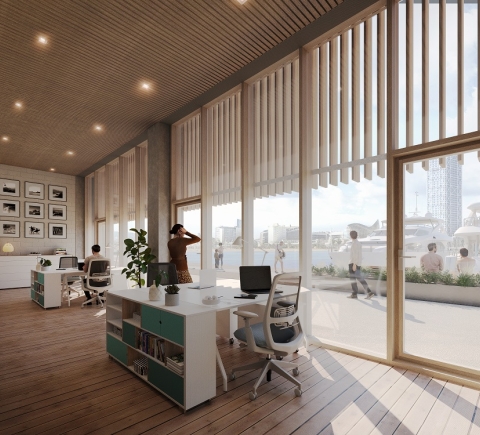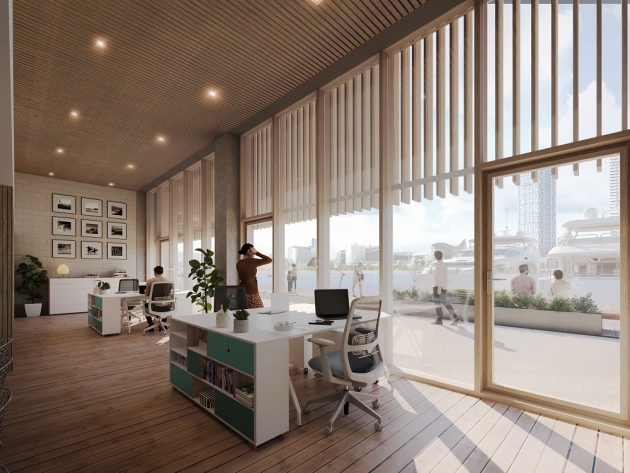
The Olympic Port prepares to select the businesses that will make up Barcelona’s first blue economy hub


The aim is to build an ecosystem of businesses and entrepreneurs capable of generating synergies with each other and with the rest of the city’s innovation and science community
The Olympic Port will specialise in four main sectors: recreational, educational, and informative sailing activities; sailing services; innovation, research and technology; and the circular economy
Everything is ready for the city’s first blue economy hub to take shape. In early 2023, the Olympic Port will begin the process of selecting the businesses and entrepreneurs who will occupy the workspaces that have been under construction on the Moll de Mestral wharf and the Dic de Recer breakwater since September.
The project was introduced this morning at the Boat Show, in a presentation involving key businesses in the blue ecosystem and Barcelona Activa, the local development agency leading the promotion and revitalisation of this economic sector in the city.
The new offices are expected to be opened gradually between the summer of 2023 and the first quarter of 2024. In all, there will be room for around 50 companies and entrepreneurs who will build an innovative environment that can attract talent, foster loyalty among the current sailing community at the Olympic Port, and create quality jobs.
Barcelona de Serveis Municipals (B:SM), the municipal company leading the transformation of the Olympic Port on behalf of Barcelona City Council, will select businesses in accordance with public procurement rules. More specifically, it will establish criteria for assigning premises, the minimum requirements interested organisations must fulfil, and deadlines for submitting bids. The process will place special emphasis on aspects such as, among others, the application of sustainability criteria to the business activity, links to the city’s business and science community, and involvement in revitalising the Olympic Port.
According to the First Deputy Mayor and Chair of B:SM, Jaume Collboni, the Olympic Port ‘is starting to demonstrate the change in direction we began in 2020’, when the City Council took over management of the space. In just a few months, the Olympic Port will become a space for work and dynamism, from where we can show our potential as drivers of the blue sectors, a key area in terms of innovation, growth, and creation of quality jobs with the sea at the heart of things’.
A blue economy hub specialising in four major sectors
The Olympic Port’s blue economy will specialise in four major blue sectors: sailing activities; sailing services; innovation, research, and technology; and the circular economy.
In particular, it will be home to businesses carrying out nautical activities of a recreational, educational or promotional character that are sustainable and respect the marine environment. There will also be companies that offer products and services relating to the sailing, maintenance, construction, sale, and design of boats, with priority given to those that encourage improved boat sustainability.
Another strategic area will be made up of companies, start-ups, and entities that focus on innovation to create sustainable, smart services and products. It is hoped that this group will drive innovation, research, and technological development from the Olympic Port in collaboration with the city’s business, university, and technological communities.
The Port also aspires to position itself as a leading space for the development of the circular economy, attracting businesses that produce or sell products and services made from recycled materials that come from marine ecosystems.
The best place for developing and promoting the blue sectors
The Olympic Port aims to be home to an innovative ecosystem of businesses and entrepreneurs capable of generating synergies with each other and with the rest of the city’s social, innovation, and science fabric. To make this possible, collaboration agreements will be signed with universities, technology institutes, and other institutions that drive innovation and create opportunities.
There will also be incentives to organise events, activities, and programmes that revitalise the Olympic Port’s ecosystem and have an impact on city residents. This task will be made easier by the new public spaces taking shape as part of the transformation and the creation of communal spaces, including an auditorium and a multi-purpose venue.
